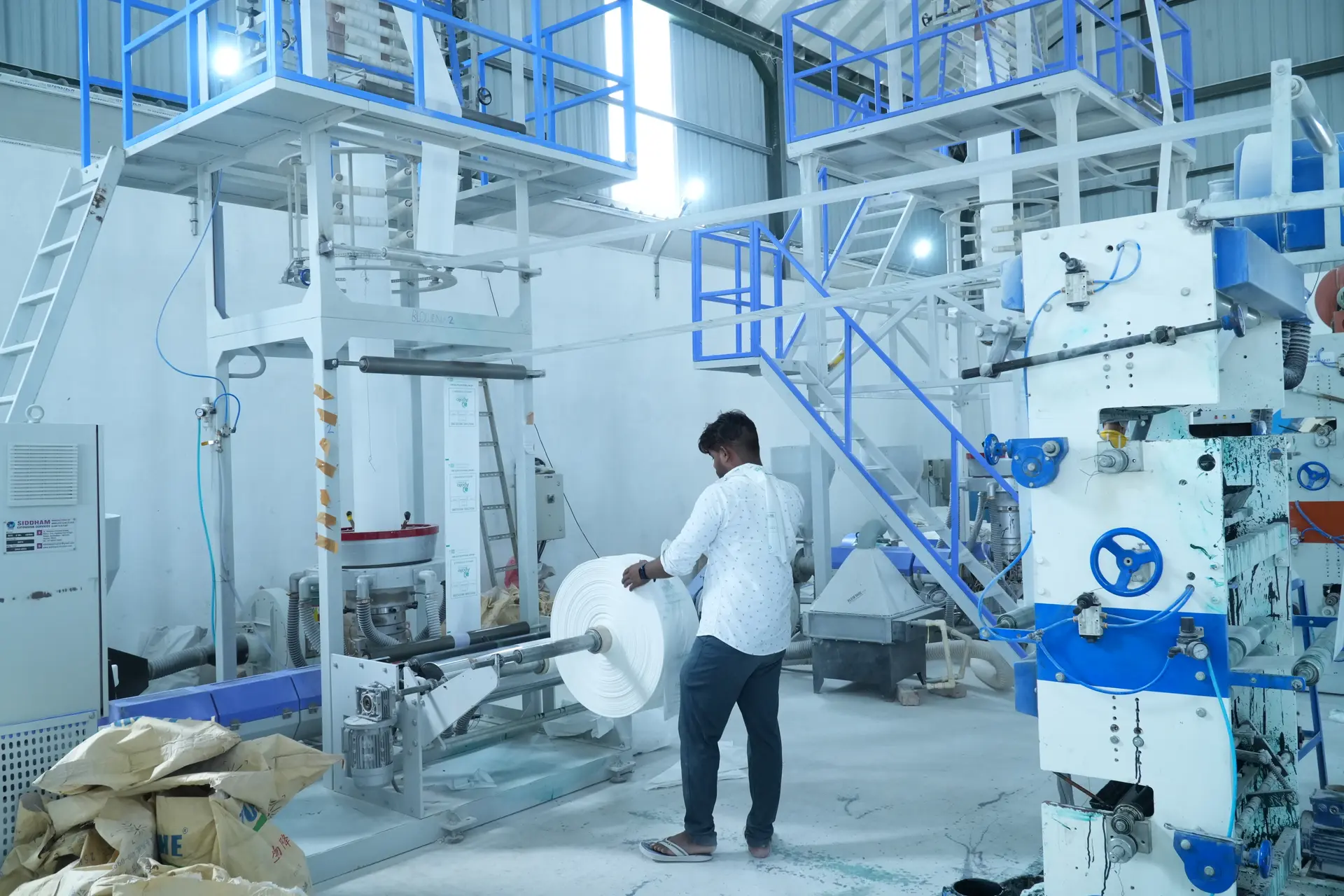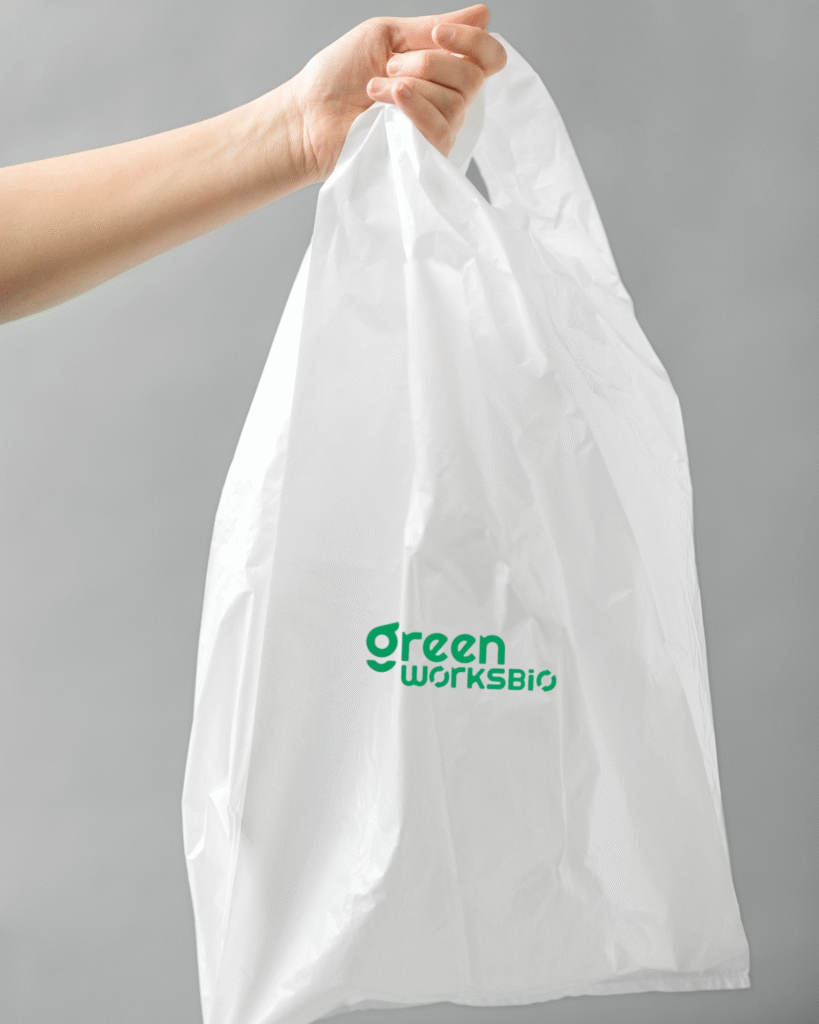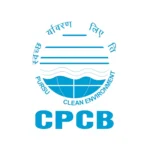Compostable Carry Bags


Compostable Carry Bags – Biodegradable, Durable & Certified
Greenworksbio Compostable Carry Bags are starch-based alternatives to traditional plastic bags, designed for retail, foodservice, and healthcare packaging. These bags decompose fully within 150–180 days in industrial composting conditions, making them ideal for businesses seeking certified, eco-compliant carry solutions.
What Makes Our Compostable Bags Work
- Certified Compostable
Breaks down fully in 150–180 days under industrial composting—zero microplastic residue. - Reinforced & Load-Tested
Durable bottom seal and high tensile strength. - Size & Thickness Flexibility
Available in customizable formats (20–120 microns) to suit diverse retail and logistics needs. - PLA + PBAT Blend
Made from renewable, non-toxic polymers with a verified low carbon footprint. - Standards-Compliant
Tested as per ISO 17088 and CIPET guidelines for compostability and safety.
Industry Use Cases & Functional Applications
Retail & E-Commerce
Ideal for clothing stores, supermarkets, and online D2C brands seeking certified compostable packaging to meet regulatory and customer expectations
Food & Beverage
Used by cloud kitchens, grocery delivery, and QSRs for leak-resistant, food-safe carry bags
Pharmaceuticals & Healthcare
Compliant option for chemists, hospitals, and diagnostic labs managing medical disposables
Hospitality & Events
Adopted by hotels, cafes, and event venues, aiming to reduce single-use plastic with branded alternatives
Agriculture & Horticulture
Used in farmer markets and organic produce packaging, where compostable disposal aligns with field-side waste protocols
Corporate & Institutional Gifting
Eco-conscious choice for conferences, expos, and CSR kits requiring branded, compliant packaging
Technical Specifications
Parameter |
Specification |
|---|---|
| Size | Customizable |
| Thickness Range | 20 – 120 microns (customizable) |
| Load Capacity | Customizable |
| Material Composition | PLA + PBAT |
| Decomposition Time | 150 – 180 days |
| Shelf Life | Up to 12 months |
| Colour | Customizable |
| Transparency | Customizable |
Certifications & Compliance

ISO 17088
Ensures adherence to international compostability standards.

CIPET Tested
Validated by the Central Institute of Plastics Engineering & Technology.

CPCB Certified
Approved by the Central Pollution Control Board for environmental safety.

TÜV Austria Certification
Under evaluation for OK Compost Industrial standard to support global export and compliance requirements
The Operational Advantage: What Greenworksbio Brings to the Table
Audit-Ready Compliance
Batch-level test reports, CPCB & EN 13432 certifications—no risk of greenwashing.
Plug-and-Play Transitions
Tech support for replacing plastic SKUs without disrupting packaging lines.
Fully Indian Supply Chain
Zero import delays, consistent quality—no hidden filler risks.
Flexible MOQ to Scale
From pilot trials to enterprise-grade rollouts, we scale with your growth.
Team Enablement
Disposal guides and internal training to align ops, R&D, and marketing.
FAQs
What is polylactic acid (PLA) and how is it used in compostable packaging?
Polylactic acid is a bio-based polymer made from renewable resources like corn starch or biomass. In recent years, it has become a key material in bioplastics used for compostable pouch films, trays, and containers due to its strength and compostability.
Do PLA-based products require industrial composting conditions?
Yes, PLA products break down effectively only under industrial composting conditions—temperatures above 55°C, controlled humidity, and active waste management practices. Home composting typically lacks the conditions required for full decomposition.
How does composting reduce carbon dioxide emissions?
Unlike traditional plastics, composting bioplastics like PLA doesn’t release fossil carbon dioxide. Instead, the CO₂ emitted during decomposition is part of the natural carbon cycle, since the material originates from plant-based biomass such as corn.
Why has sustainability driven demand for compostable packaging in recent years?
In recent years, increasing regulations and public awareness have pushed brands toward sustainability. Compostable packaging supports circular systems, reduces landfill load, and aligns with eco-conscious waste management practices, especially in sectors using pouches and mailers.
